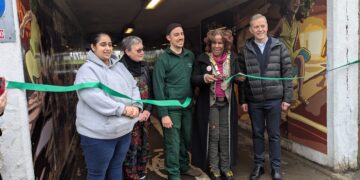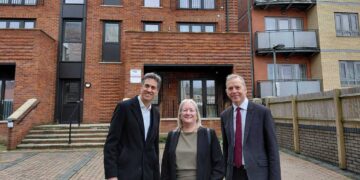READING is one of the best places in the country for business growth according to a new survey.
The Demos-PwC Good Growth for Cities Index places the town in fourth place, when assessing public priorities for growth.
The rankings of the 50 largest cities in the UK assesses 12 key economic wellbeing factors, including jobs, health, income and skills, as well as work-life balance, house affordability, travel-to-work times, income equality, environment and business start-ups.
Two new indicators – safety and high street and shops – have been added to the index. The separate GVA analysis included in the report takes into account a city’s sectoral make-up, the impact of the use of the furlough scheme to protect jobs, and rates of Universal Credit claims, Covid infection rates and mobility data to estimate GVA growth for 2021 and 2022.
Oxford is first, with Bournemouth and Swindon in second and third places.
The report shows provincial cities are expected to show stronger economic growth than those that are larger and more metropolitan and there is an increased focus from the public on wellbeing, the environment and income distribution.
Cities in the South East are expected to show an average GVA growth rate of 7.9% for 2021 – above the 7.3% UK average.
Keith Harrington, South East Regional Market Leader at PwC said: “As we look forward it’s encouraging to see so many of our cities performing well in the Index, particularly in terms of their expected economic growth as we move beyond the pandemic.
“It’s clear that inequalities still remain within regions and we need to address this.
“The progress we’re seeing in these areas, along with the changing priorities among the public, have presented a window of opportunity that won’t be open forever. It is important that we address the areas in which our region falls down, such as in house price to earnings and income distribution.”
He continued: “This report sets out a series of recommendations for policymakers and businesses which includes developing skills and investments to deliver green growth in a sustainable and fair way.
“It’s more important than ever for local governments, businesses and communities to work together to address some of these key issues. At PwC, we recognise the huge opportunities that the region brings, and all of us within the region have a role to play in contributing to the future success and growth in the South East.”
Of the 12 variables included in this year’s index, the biggest driver for improvement for cities over the last three years has been better work-life balance.
Broad improvements in the skills of older workers, as well as income distribution and life expectancy, have also helped the gap narrow slightly between the highest and lowest ranked cities.
Justin Martin, devolved and local government lead for PwC, said: “We’re emerging from the pandemic with a new set of priorities, largely focused around fairness, the environment and work-life balance. It’s likely that the way we have lived over the past two years has led to people reflecting on what they value the most.
“This appears to be having a significant impact on the fortunes of different places, with the cities that perform well not only having strong local authorities but also being characterised by strong environmental and safety credentials.
“While the vision set out in the Levelling Up White Paper centred primarily around geographic inequality, it did recognise that there are multiple societal disparities which affect people and could hinder the economic recovery.”
He continued: “We know from our research that women and people from minority ethnic backgrounds are the most likely to have been negatively impacted as a result of the pandemic.
“Central government, local government and businesses all have a role to play in developing localised plans to address not only the regional inequalities but the societal gaps that also exist within their cities, towns and communities.”
























